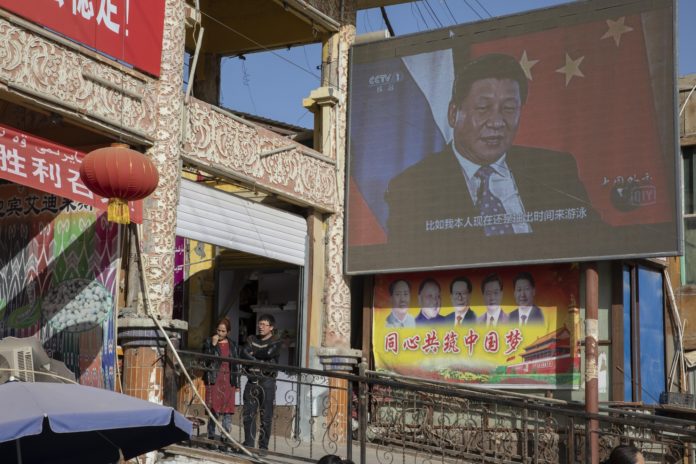
By Anne Walker | Staff Writer
Tuesday, then-Secretary of State Mike Pompeo released a statement labeling China’s actions against Uighur populations in the Xinjiang region as “genocide.”
While the decision to heighten criticism toward China came on President Trump’s last day in office, according to reports from Politico, the Trump administration had considered taking this action since August.
A Foreign Ministry spokesperson announced Wednesday that China would sanction 26 former Trump administration officials as well as Trump and Pompeo. The statement claimed that they had conducted a “series of crazy moves which have gravely interfered in China’s internal affairs” and “seriously violated China’s sovereignty.”
The State Department reported instances of “forced sterilizations, forced abortion, forced birth control and the removal of children from their families,” making the United Nations definition of genocide applicable to the situation in Xinjiang.
The United Nations defines genocide as “acts committed with intent to destroy, in whole or in part, a national, ethnical, racial or religious group.”
Twitter locked the account of the Chinese Embassy to the U.S., after Chinese officials used the platform to characterize Uighur women as “baby making machines.”
Dr. Paul Marshall is the Jerry and Susie Wilson Chair in Religious Freedom at Baylor’s Institute for Studies of Religion (ISR) and a senior fellow at the Religious Freedom Institute in Washington D.C. He said the use of the term genocide is both an “accurate description of the situation of the Uighurs” and a “call to action” because under international law, countries are obligated to act against genocide.
President Joe Biden appears to support this last-minute action from the Trump administration. Biden had already classified the Chinese treatment of Uighurs as genocide during his presidential campaign. Antony Blinken, Biden’s pick for secretary of state, also indicated approval of using the term genocide during his confirmation hearing on Tuesday.
Marshall said he believes “the Biden administration should continue the harder line on China that developed under the previous administration.”
“They should continue discussions with Japan, Australia, India and others in the area, as well as with European trading partners, on coordinated action to affect China’s policies internally and externally,” Marshall said. “China needs a coordinated response and Biden and incoming Secretary of State Antony Blinken have indicated their preference for such a response.”
Some observers note the timing of Trump’s harsh denunciation of China’s actions. Trump left the White House on Wednesday, leaving the ramifications of this move and the damage it inflicts on U.S.-Chinese relations for the Biden administration to address.
Ardmore, Okla., junior D.A. Smith, a professional writing major and religion minor, shared her reaction to the State Department’s announcement, saying “labeling it a genocide is a call for action. I know that this certainly made me think about how I could help.”
Dr. Xin Wang, associate professor of Chinese and division director of African and Asian languages at Baylor, reflected on the Trump administration’s final move against China, saying, “I think the timing was just very critical.”
Wang characterized Trump’s decision as “very concerning.” He said he fears that the move could “escalate the deteriorating relationship between the two countries” and may “sabotage” the Biden administration’s relations with China.
Wang said he believes universities could play a role in repairing U.S.-Chinese relations. He explained that “scholarly exchange or student exchange could help us foster . . . mutual dialogue.” He also pointed out the opportunities at Baylor for American and Chinese citizens to study together and discuss issues relating to their respective countries.
Beginning next semester, Baylor will offer AST 4388, a new course on U.S.-China relations within the Asian Studies department, in which students will be encouraged to analyze contemporary Chinese policies from a variety of perspectives. Wang said he hopes this course “will be a forum for all students, including Chinese students at Baylor, to form dialogues and mutual understanding about each other.”
Marshall also encouraged Baylor students to remain informed on international instances of religious persecution. He said they can make a difference by following research on religious freedom, speaking out against the suppression of religious freedom and calling on their representatives to take action.





